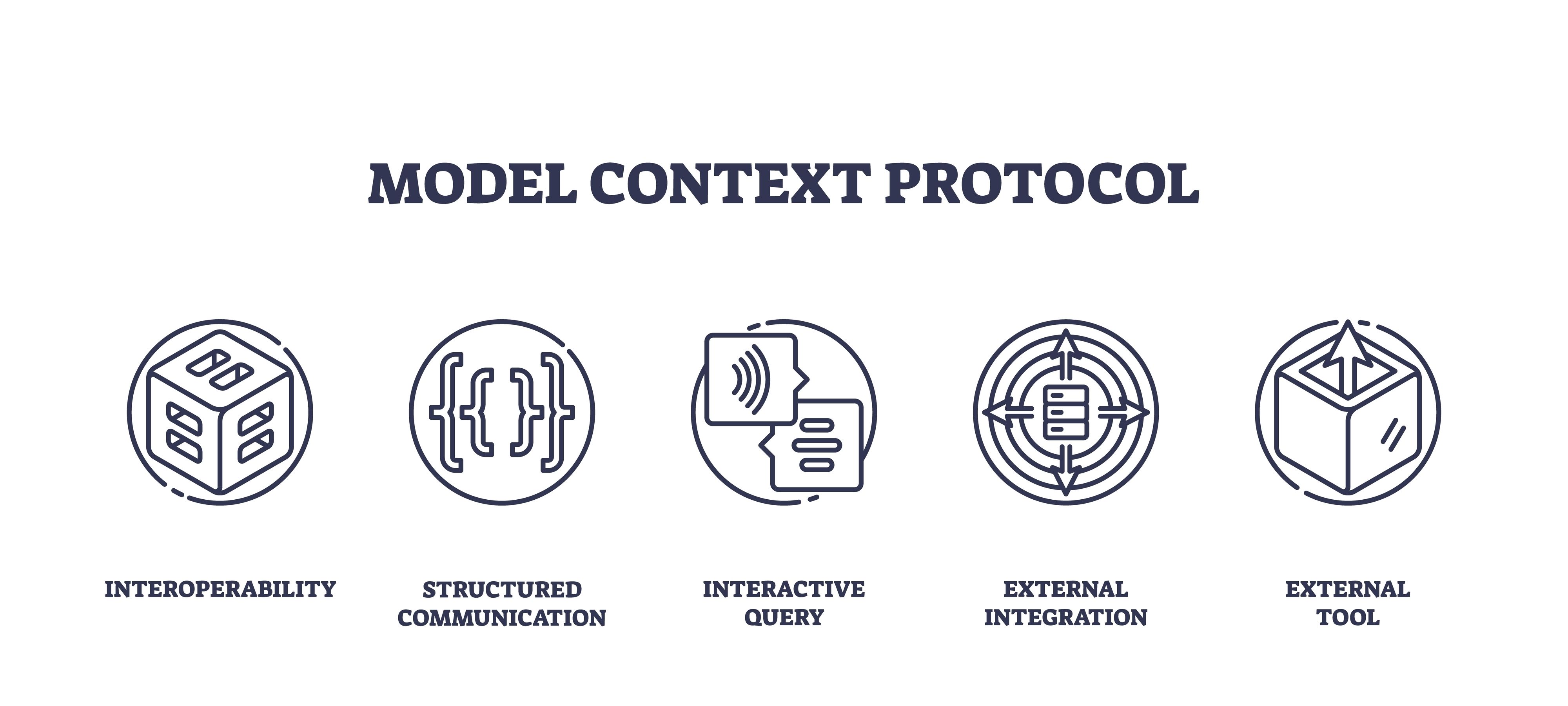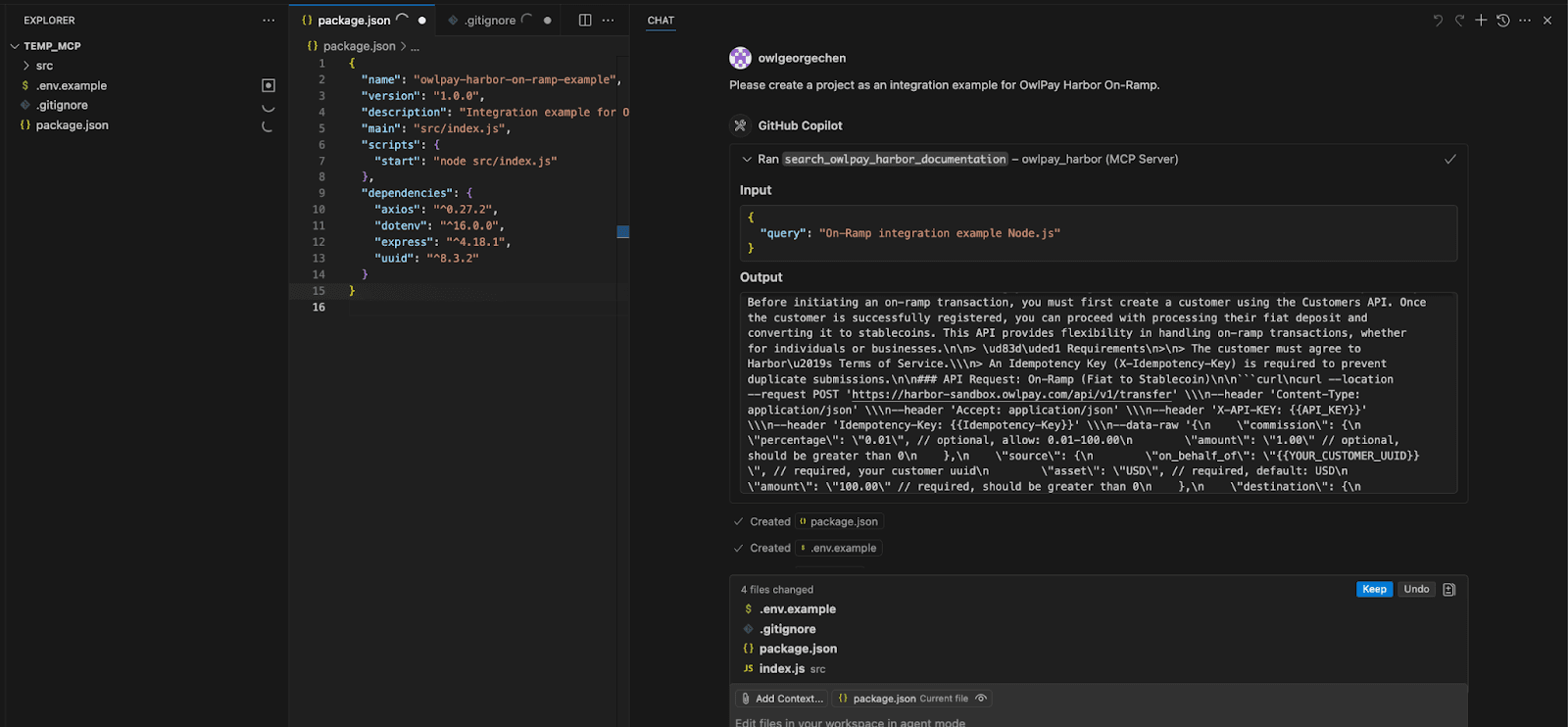AI-Era Strategies for Smart Information Sharing in Business: OwlPay Harbor MCP Tool

In an artificial intelligence (AI) dominated environment, how enterprises efficiently manage and transfer knowledge has become a core topic in order to maintain competitiveness. In 2025, OwlTing Group launched a new digital payment framework, "OwlPay Harbor," designed for Web3, decentralized finance (DeFi), and digital wallet businesses, providing seamless and secure transaction services between US dollars (USD) and USDC stablecoins. With enterprise-level APIs and compliance licenses covering multiple states in the U.S., OwlPay Harbor has become a reliable partner in the Web3 ecosystem.
To facilitate nearly effortless integration of OwlPay Harbor's payment solutions, the team has invested significant effort, including providing detailed technical documentation and professional technical support. Recently, the team further integrated the documentation for connecting to OwlPay Harbor with the MCP (Model Context Protocol) tool, which can be installed on customers' preferred AI platform (such as Cursor or Claude Desktop), allowing AI agents to directly query document contents for a more efficient integration experience.
This article will use the OwlPay Harbor MCP server as a starting point to explore traditional methods of acquiring enterprise knowledge through AI and discuss why businesses should transform knowledge into MCP tools to foster smarter information sharing and knowledge transfer.
What is MCP?
MCP (Model Context Protocol) is an open standard protocol introduced by Anthropic, designed to provide a standardized method for large language models (LLMs) to connect with external data sources and tools. It functions similarly to the USB-C interface for AI applications, allowing models to seamlessly access databases, file systems, and other services to generate more relevant and higher-quality responses.
Through MCP, developers can set up MCP servers that seamlessly provide internal tools, resources, and prompts for AI models. AI platforms act as MCP clients that communicate with MCP servers to utilize these tools.
Traditional Methods of Acquiring Enterprise Knowledge through AI
Before the introduction of MCP, enabling AI to understand proprietary enterprise knowledge posed a significant challenge. Enterprises typically relied on several methods to achieve this goal, each with its unique advantages but also significant limitations:
- Static Technical Documents: Enterprises provide detailed technical documentation (such as PDFs or web pages) for AI or developers to reference for knowledge.
- Advantages: Relatively low production cost, easy to distribute and archive.
- Challenges: Inconsistent formating, makes it difficult for AI to efficiently parse and extract useful information. Lacking interactivity, it cannot answer difficult questions or complex queries.
- Fine-Tuning: Enterprises retrain AI models on specific datasets to better align with internal knowledge requirements.
- Advantages: Highly customizable, accurately reflecting enterprise data characteristics.
- Challenges: Requires significant computational resources and time, resulting in high deployment and maintenance costs. Difficult to adapt to frequently updated dynamic data, necessitates regular retraining.
- Retrieval-Augmented Generation (RAG): Existing AI utilizes enterprise websites via search engines and generates context-based responses.
- Advantages: Flexibility, using the latest information without the need for retraining.
- Challenges: Possibility of retrieving irrelevant or outdated content, affecting response accuracy. Complex technical document structures are difficult for external search engines to parse effectively. Highly reliant on the quality of search engines and the structure of enterprise website content, requiring additional optimization.

Why Do Enterprises Need MCP Tools? Taking OwlPay Harbor MCP as an Example
While traditional methods have value in specific scenarios, they often face challenges related to integration complexity, high maintenance costs, or insufficient flexibility. For OwlPay Harbor customers, relying on static documents or technical support can lead to a time-consuming learning curve or repeated communications, hindering the speed of integration of payment services integration processes. The introduction of MCP has revolutionized this situation, allowing customers to rapidly and smoothly connect to OwlPay Harbor through standardized and AI-driven knowledge access, eliminating the cumbersome barriers of traditional methods.
In a knowledge-driven AI age, proprietary enterprise data is an invaluable asset. Transforming this knowledge into MCP tools can enhance efficiency internally and generate greater value for customers and partners. Here are several compelling reasons businesses should consider:
- Seamless Integration, Time and Effort Saving: MCP allows AI direct access to enterprise knowledge without complex custom integration. For example, MCP tool from OwlPay Harbor enables clients’ AI assistants to swiftly resolve technical queries, achieving seamless integration of payment services. This "plug-and-play" experience significantly shortens the development cycle, allowing customers to focus on business growth.
- Keeping Knowledge Fresh: Technical specifications or market dynamics are constantly evolving. MCP ensures the information accessed by AI is always up-to-date, helping customers adapt to rapidly changing environments.
- Increasing AI Value: When AI can deeply understand enterprise knowledge, it can provide more accurate and valuable suggestions. OwlPay Harbor's MCP tool allows AI to be a powerful assistant for customers, providing comprehensive support from basic configurations to advanced optimizations.
- Significant Cost Efficiency: Compared to the high costs associated with traditional integration methods, MCP's standardized approach significantly reduces development and maintenance expenses. It allows small and medium enterprises to easily adopt AI-driven knowledge management tools, enhancing operational efficiency and accelerating market competitiveness.
- Preparation for the future: With the rapid advancement of AI technology, standardized protocols like MCP are becoming industry trends. Enterprises that adopt MCP early will gain a competitive edge in the future, providing customers with a more intelligent and seamless experience.
Conclusion
In the AI-driven era, the value of knowledge is no longer just in possession but in how it is effectively utilized and swiftly transmitted. The practical experience of OwlPay Harbor MCP has taught the team that technical documents or enterprise knowledge are no longer just static assets; through standardized tools like MCP, they can be transformed into bridges for collaboration across team and enterprise.
With AI-enhanced intelligent querying capabilities and modular content design, knowledge becomes more immediate and actionable, effectively addressing the dynamic integration needs and accelerating innovation, ultimately creating tangible value for customers and partners.
Related Information
(Images shown are AI-generated. They are for informational and illustrative use only.)